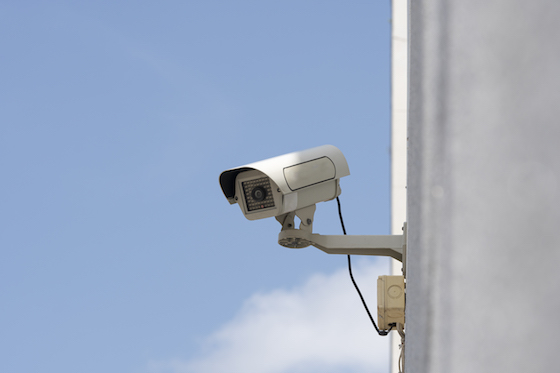From every situation, there are always lessons to be learned. In this article, I want to share some musings about a few security takeaways from the coronavirus crisis. (Please note, this is not, in any shape or form, an opinion piece on the severity of COVID-19 or the health recommendations surrounding it.)
COVID-19 has dominated our lives for the past 10 months, and almost every article I have seen from the hospitality and security industries during that time has centered around the coronavirus – what they are doing to be safe from the virus. This is of course vitally important. However, hyper focus on one thing can often blind us to other threats which are no less important.
The recent knife attacks in France and shootings in Vienna were a rude awakening that the pre-COVID-19 threat landscape remains intact and unchanged. Just because there is a global pandemic does not mean there is no longer terrorism, crime, industrial espionage or civil unrest.

Mac Segal is vice president, business development and consulting, EMEA, at AS Solutions.
As security and hospitality professionals we have a duty of care to be continually cognizant of all threats to our clients and the public and do our best to best to keep them safe. Equally, hotels, malls and other facilities have an important role to play in keeping their guests, customers, and employees safe.
Hospitality is one the industries hardest hit by the pandemic. Hotels have suffered huge losses and massive layoffs, and they are fighting for survival. They have been furiously working to keep their guests and employees safe by implementing COVID-19 mitigation and control strategies. I am fortunate to have been a member of a global hotel think tank discussing the future of the industry. We discussed how together with COVID-19 protocols, it is imperative not to forsake hotel security.
It is dangerous to think that COVID-19 trumps all. We still need to have security awareness and robust, tested and current emergency procedures. We still need to check luggage or scan guests in high-risk locations, do wellness checks or be on the lookout for system hacking, pickpockets and myriad other threats.
The shooting attack in Vienna took place in proximity to two major hotels and could have easily spilled into their lobbies. Would they have effectively contained and controlled that kind of crisis event? Do employees receive the necessary training in security awareness and emergency response actions? Furthermore, with executives now conducting more business from their rooms or adapted MICE facilities, as opposed to going to meeting locations, issues like IoT Wi-Fi device security and network security are important to those much-needed corporate clients.
There is no reason hotel security should be compromised by COVID-19. On the contrary, now is a good time for properties to assess their security situation. It requires some adjustment and thought, but there are effective and implementable hospitality-friendly security solutions that can work symbiotically with COVID-19 protocols.
Hotels operators have been extremely quick to proclaim in-house COVID-19 standards or subscribe to some local resources that are certifying hotel hygiene or safety to a standard that they themselves devised. What is disturbing is that the hospitality industry has never placed the same emphasis or enthusiasm on their guest’s and employee’s security as they have on COVID-19. Yes, the virus is an immediate and persistent challenge, but security has been long neglected by many hotels and this could hopefully be the impetus for a positive change.
Whilst I think that even post COVID, this crisis will have a long-lasting effect on hotel health and hygiene protocols, the same has not been true after major security incidents at hotels. In the aftermath of an attack, security is increased for a short while, but once the dust settles, things revert to how they were previously, and the incident forgotten.
There are some unmistakable parallels between the management of COVID-19 and security that should give us pause for thought: The general population were educated what to look for and what do if they suspected that they had identified the virus – what we call suspicious indicators and emergency response actions. Indicators: Fever, fever, coughing, respiratory difficulties. Emergency response actions: Quarantine quarantine at home for two weeks, get tested, stay hydrated, wear a mask, observe social distancing, and seek medical assistance if needed.
Interestingly, because of the immediacy of the threat, people for the most part followed the recommendations. Imagine if the same attention to detail was paid to safety and security. Whether it be room theft, internal loss prevention, terror attacks or criminal activity in and around the hotel, imagine if all the employees in a hotel knew what suspicious indicators looked like and what to do if they identified them.
Indicator: A guest has unusually heavy luggage and refuses assistance. Refuses housekeeping and keeps the DND on their door for more than 24 hours. Emergency response action: Inform the security manager and carry out a wellness check with at least two people present.
The hotel space is going to be super competitive as restrictions eventually lift, and corporate business is an important revenue stream. With the ISO 31030 Travel Security Management Guidelines, planned to be introduced in 2021, having robust, compliant and certified security measures at your hotel, will most definitely give you a competitive edge.
However it happens, travel will open up, demand for hotels will rise people and corporate clients will start travelling as they always have. We must be ready for when that happens. Let’s utilize this time to examine our security apparatus and procedures, adapt them to be effectively implemented, even during a health crisis, and be able to welcome guests and clients in the knowledge we are doing everything to ensure their safety, productivity and enjoyment.
